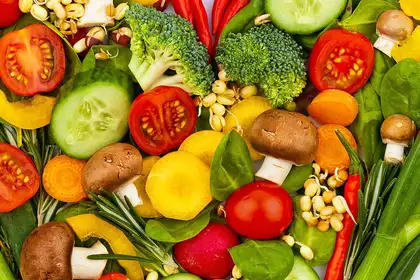
International food experts flock to New Zealand this November.
Leaders in food from around the world will be gathering in Auckland for a symposium to explore the future methods of making it more nutritious and sustainable.
Hosted by the Riddet Institute, the symposium will look at the most recent and cutting-edge discoveries in food science, including the challenges around designing healthy and sustainable foods, getting our protein from edible insects, and how to feed the gut microbiome to achieve healthy outcomes.
The International Symposium on the Delivery of Functionality in Complex Food Systems is in its seventh year and has previously been held in Paris, Israel and other parts of the globe, but this is the first it has been held in the Southern Hemisphere.
Conference co-chair Dr Michael Boland, of the Riddet Institute and Massey Institute of Food Science and Technology says the world’s relationship with food is ever-changing.
“Everyday people are told that processed foods are bad for you, and they would be right when you are talking about adding things like high amounts of sugar and salt, but there are scientists all over the world processing foods to make them healthier, more nutritious and actually improving the food through processing.
“Compared to 50 years ago, the connection in people’s minds between food and health is a lot stronger, with a shift to preventive health measures that can be achieved through diet. Overcoming the challenges in food doesn’t just require overcoming the challenges in the science, but overcoming the challenges in public perception as well.”
“At the spear point is where smart food technology meets nutritional biochemistry – that’s the future – that’s where our scientists are focusing their efforts,” says Dr Boland.
The conference will feature a line-up of 10 expert speakers from Europe, North America and Asia, as well as offered and student papers.
One of those speakers is Professor Perla Relkin of France’s AgroParisTech, who will present about her work on novel approaches to replace animal-derived proteins, namely the challenges for promoting edible insects as sustainable and novel source of proteins in human food.
“We need to meet the growing demand for food proteins by limiting the use of natural resources, seeking new sources of proteins is of great scientific and technological importance. After a review on the structure and techno-functionality properties of animal and plant-derived proteins and their substitutes (hydrocolloids; hydrogels) in food, the talk will present challenges for promoting edible insects as sustainable and novel source of proteins in human food".
Conference co-chair and Co-Director of Riddet Institute Distinguished Professor Harjinder Singh says New Zealand food scientists are encouraged to attend, as well as industry and young researchers.
“This symposium will provide opportunities for academia and industry researchers to discuss latest developments in the field, and develop collaborations in a way that only face to face networking can. For students and young researchers, they have the chance to meet world experts and discuss their research projects and ideas.
Professor Paul Ross and Professor Rafael Jiménez-Flores, will each present on maintaining a healthy population of bacteria in the gut – an emerging hot topic in the industry.
The symposium will be held at the Grand Millennium Hotel, Auckland, from November 5-8, 2017. Click here for more information.